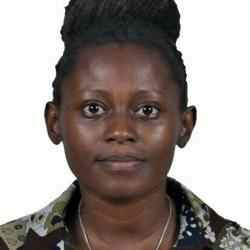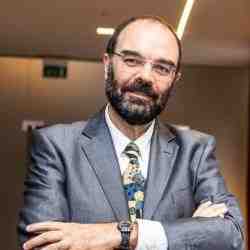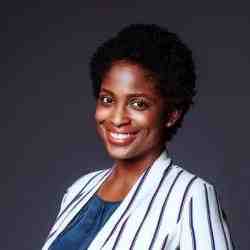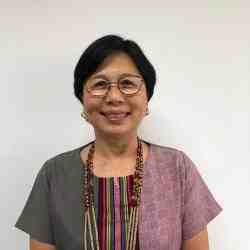Wprowadzenie
Ursula is bringing a new energy cycle paradigm by giving all components to the communities. She is doing that through shifting the ownership, management as well as production into the hands of citizens, thereby fostering energy saving and renewable sources.
Nowy pomysł
Ursula is the first person to show that electricity production and distribution under responsible citizens is a green and economical alternative to that supplied by a small number of monopolists. Her citizen-owned social business company Elektrizitätswerke Schönau or Power Supplier of Schönau (EWS), has disrupted the pricing and policy monopoly of large utility companies, and pioneered the green energy movement, delivering nuclear-free renewable energy to households and businesses alike. Ursula anticipated a move that would later be laid down by statute in Germany: The liberalization of energy markets. Furthermore, Ursula pioneered a pattern of green, decentralized energy production. She enables citizens to become private green energy producers and to sell their electricity surplus back into the grid. With an energy efficiency rate of 90 percent, these independent citizen producers are three times more efficient than a conventional power plant, which wastes up to 70 percent of produced energy through heat. In addition, with EWS’s motto, “We only sell you the energy that you cannot save,” Ursula positively tackles the contradiction that other energy utilities ignore—namely, between the desire to maximize profits and the need to save resources. With her social business and through the help of campaigns and collaborations with other citizen organizations (COs), she actively helps customers reduce their consumption and hence their emission rate. Thereby, she manages to instill in citizens a feeling of belonging to an important movement for both civic participation and climate protection.
Problem
Before the beginning of the liberalization of the energy market in Germany in the late 1990s, large utility companies enjoyed a monopoly in terms of price setting and product offers. They derived almost 95 percent of their energy from nuclear power and coal, and could for a long time ignore the demand from customers for green products. Customers had no power to choose which source of energy their electricity was from. Even now, almost a decade after liberalization—which is still being hampered by high transportation tariffs imposed by the large owners of the grid—the four largest utility companies still dominate 80 percent of the German market.
The second issue relevant to understanding Ursula’s idea is the problem of energy loss during the production process. The large companies that dominate the market produce most of the energy in conventional power plants with sources of coal, gas, oil, or uranium. These plants only reach an efficiency rate of 30 to 40 percent, with the remainder of heat lost because it requires expensive transportation circuits to transport, and even this would only be possible over short distances. Conventional power plants would have to be in the center of a town to be efficient—which is difficult to realize. Nuclear plants have an even worse efficiency rate because their waste heat cannot be used at all in district heating. To illustrate the dimension of the problem: The lost heat would be enough to heat every building in Germany twice (not only private households but every building). Combined heat and power plants have a higher efficiency rate; and small combined heat and power plants can even be used in large private households, and thus raise the energy efficiency rate to 90 percent. When Ursula started promoting combined heat and power plants (CHP), she was a lone fighter, years ahead of corresponding federal government plans to promote investments into such plants.
Last but not least, utility companies face a discrepancy they find hard to bridge: They want to maximize their profits and sell as much energy as possible while knowing that resources are scarce and CO2 emissions cause pollution. Helping citizens save energy will bring turnover down. Even today, with “green consciousness” being high among Germans, large utility providers offer base tariffs that provide citizens with few incentives to reduce energy consumption.
Strategia
Ursula’s strategy was to first break the monopoly of the energy suppliers and to empower consumers to choose their own sources of energy—years before market liberalization in Germany set in. This step is now historic, but it is important to mention because its ramifications are still felt today, and what she did still influences similar projects throughout Germany and abroad.
It was around 1990, when the citizen initiative Ursula had founded together with others had for some time unsuccessfully demanded that the regional monopolist provide green energy tariffs and support energy saving in the community. During this time, and withstanding a lot of political pressure, Ursula had skillfully set up communal networks of citizens to back her, as well as networks of energy and technology experts across Germany.
Ursula came to the conclusion that the only way to see her vision of green energy provision come through was to actually take over the regional grid with her citizen initiative—something unheard of. Scientists and consultants did a scientific feasibility study for her and came to the conclusion that her plan was doable, but pressure from the industry did not cease, and politicians were doubtful, too, whether citizens could be given responsibility over grid management—after all, it had been in the hands of experts for more than 100 years. With the help of two citizen referendums, in which more than 80 percent of the population voted, Ursula proved that her vision was the will of the majority. Still, she was laughed at and threatened with liability claims. Eventually, the monopolist demanded to sell at €4M (US$5.3M), a price which judges would years later (after liberalization in a court case which Ursula won retroactively) label as illicit because it was twice as expensive as it should have been.
Ursula raised €2M (US$2.6M) from hundreds of citizens who were ready to invest in their own energy utility company. Furthermore, she started a nationwide campaign with the pro bono help of an advertising agency, her goal being €2.5 (US$3.3) from every environmentalist, and mobilized an additional €1M (US$1.3M) within a short time in the form of donations to her not-for-profit association. Eventually, her citizen initiative, with the backing of the referendum and by now also local politicians, could buy the grid. The citizen company EWS was born and was set up by the citizen initiative in 1997. It took three years to break even.
EWS operates as the first citizen-owned social energy business, and it supplies municipalities in the region of Schönau as well as businesses and customers all over Germany with green energy. Shareholders are citizens and at present there are 650. Its turnover was at €24M (US$32M) in 2006. A percentage of every cent earned is invested into renewable energies, according to the statutes of EWS. Ursula deliberately decided it should be a percentage of earnings, not of profits, because she feels there are many ways to hide profits and she wants this policy to continue beyond her life. Shareholders are paid interests not higher than the annual inflation rate. All other profits are reinvested into growth, especially into new, green technology, the set-up green citizen production units, and renewable energy projects in Germany and abroad. There is also a foundation and a not-for-profit association that fund the spread of EWS’s know-how, campaigns, seminars for scientists, and national and international attendees, and which help replicate the EWS model in other communities, showing citizen initiatives how to manage and run a utility company.
EWS started buying and selling energy from renewable sources. By now, they draw 95 percent of their energy from renewables, and 5 percent from gas co-generation.
But Ursula does not stop here. Her vision is to cut transportation methods to maximize energy efficiency, and to empower citizens to take charge of their energy consumption: A model of decentralized green energy production. Therefore, EWS enables citizens to become independent energy producers. With financial help, they can set up solar panels, or small CHPs. Ursula first targeted communal institutions such as homes for the elderly, schools, and administration buildings. With technology advancements, it is now possible for EWS to enable private households to install micro CHPs. In both cases, the proximity of CHPs to consumers utilizes 90 percent of primary energy.
EWS customers facilitate the establishment of private green power plants. Each customer can make a voluntary additional payment of a “sun cent” between 0.5 and 2.0 cents per kWh that goes into a fund to support the operation of new small CHPs, solar plants, or wind power plants. Voluntary contributions also enable EWS to pay citizens an appropriate fee for feeding their surplus energy back into the grid, thereby making the feeding back financially viable for households. In other words, through the mobilization of its customers, EWS also promotes the growth of decentralized renewable energy production in Germany—a big step towards tackling the dominance of large utility companies and the integration of energy production and distribution.
Ursula has also reactivated old small hydroelectric power plants to communal ownership which used to be rather common in the South but were not used because large power companies paid the owners to not use them, but buy (nuclear) power from them instead. EWS invested in these plants again and contracted them back to the communal owner.
Currently, there are 75,000 private EWS customers all over Germany, and within only a few years, approximately 1,200 citizen-owned private power plants (colloquially known as “rebel power plants”) with an energy efficiency rate of 90 percent have come into existence, each feeding its surplus energy back into the grid. With her support of CHPs, Ursula was again years ahead of the corresponding federal government plants to promote investment in CHPs. Her model was path-breaking in that it accentuated a development that is now being heralded as exemplary for the future: An independent, decentralized grid system, much easier to control than large systems, much more compatible with wind and solar energy than conventional plants, and with a remarkably high energy efficiency rate.
EWS has been the pioneer of market liberalization, green energy provision, and independent production in Germany and around the world, with tariffs that are entirely market compatible. Early on, Ursula and EWS influenced the behavior of both monopolists and communal energy providers in Germany, making them offer green energy products to their customers (solar, wind, bio mass, and others) that are now state of the art. A sought after speaker and educator, she has also contributed to an increasing customer consciousness and awareness about energy.
Ursula increasingly focuses on reducing CO2 emissions and forms coalitions and partnerships with other COs through which she spreads her energy saving methodology and her materials, among others CO2 online from Ashoka Fellow Johannes Hengstenberg. Thanks to her social business construction and its foundation, EWS is not out to maximize profits. It abolished base rates and old tariffs that basically sold energy cheaper the more you consumed, and instead, offers small base rates combined with linear tariffs. Each customer gets a free booklet with energy-saving tips. EWS also offers free energy saving consultation for private homes. They have recently started a campaign, which will offer a bonus of €75 (US$100) to every customer in and around Schönau who replaces his old inefficient recirculating pump with an intelligent new one, thereby reducing consumption from 400 kWh to 100 kWh per year.
EWS is also investing in intelligent technology to maximize ecological benefits. For example, to synchronize response from small CHPs to the demand from the power distribution network, to provide an affordable guarantee of generating capacity, and to handle peak demands.
Ursula believes that in the mid-run, the market share of 80 percent of the large utility companies will come down to 30 percent. It is not her goal that there should be no large utility companies, nor that EWS becomes the 5th or even 25th largest company in Germany—but rather that other communities follow her example and that citizens and governments rethink how energy is produced and managed.
When EWS retroactively won the legal case around price setting against the former monopolist, they set a legal precedent that paved the way for other initiatives to transform their energy supply. At present, EWS actively helps communities in the region, whose often 20-year contracts with large energy suppliers are now running out, to replicate its model. By now, Ursula has widely proven that citizens can take over responsibility for the grid without a blackout occurring. She consults citizen groups in Germany, Europe, and all over the world in energy, management, and technology related questions, and helps citizen initiatives in many countries to foster independent production of renewable energy. Part of EWS is the so-called “Schönau feeling” that Ursula shares with her colleagues, customers, and supporters from Germany and beyond: The awareness of being part of an important movement that combines protection of the climate with citizen empowerment.
Osoba
Ursula was born in 1946. She lived with her husband and five children in the Black Forrest region, until a turning point in her life happened: The nuclear catastrophe of Chernobyl. Germany, like other European countries was affected by contaminated rain and there was uncertainty about what to eat and even whether it was safe to go outside. Realizing that politicians were not reacting, Ursula founded with her husband a citizen initiative, “Parents for a Nuclear-free Future” that spread across Germany. Ursula started reading up on technology and energy affairs and came to the conclusion that there are two main problems she could realistically start tackling: The waste of energy from the consumer’s side and the waste of energy during the energy production process. She started with the former. For a year, she and her initiative tried to save energy to test what could be done and how. After that, Ursula compiled her findings as easy to use tips for any household, distributed them, and then initiated energy saving competitions to create awareness and make the topic more interesting. These competitions, accompanied by marketing campaigns, seminars, and round tables with both citizens and experts, were hugely successful, and spread to many communities across the nation.
For Ursula, there were two important outcomes from these years. First, she built close networks to energy and environmental specialists—which would later prove crucial. Second, she built social capital through her citizen networks, and she did so in an ideology-free way. Ursula gained trust in citizens, and citizens gained trust in her. This was the foundation for everything that was to come, and gave her the confidence to start exploring energy production and distribution. Her husband Michael works as a doctor but has always supported EWS in his spare time. Together with her husband, Ursula has won several prizes and awards for her idea, among the most important, the German Federal Cross of Merit, awarded by the President of Germany; the Henry Ford European Conservation Award; the German Founder of the Year Award; the International Nuclear Free Future Award (Los Alamos); the German Energy Prize; and, the European Solar Award. Ursula is regarded as role model by many environmental groups and green investors throughout Europe.




